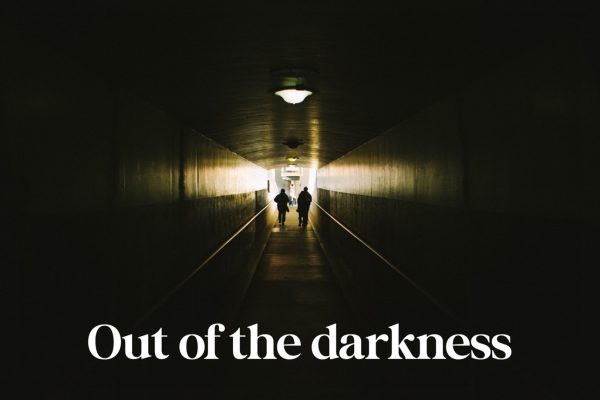The Morrison Government: A textbook case of rampant, moral disengagement

By Steve Davies
2023: What have we all been seeing for a long time? Media report after media report, enquiry after enquiry all showing how inhumane and corrupting the Morrison Government was.
Everything from Robodebt, the behaviour towards women within the parliament, conflicts of interest, the abusive treatment of whistleblowers through to throwing millions of dollars at consultancy companies. The list goes on and on.
People are rightly saying that this is all due to the unhealthy culture of politics and government itself. Some media reports say the same and, again rightly, add that it’s the system.
Australian Public Service ‘experts’ and senior officials say that culture change is needed. Then they say, culture change is hard. This sounds plausible and right.
However, they are wrong. They have been banging on about culture forever. It’s a failed model. One that consultancy firms make a lot of money out of.
As for the public in general and the causalities and victims of this culture? They are rightly demanding real and lasting change. They want answers to the question of what drives all this abuse and disempowerment. They want to know why there is so much silence and denial from government.
It is as clear as day that people need practical tools for understanding, empowerment, and action. The same applies to people within government and Australian Public service agencies. The great explain away of culture has achieved nothing.
A more precise people friendly approach and tool is needed. A tool and approach that connects people and enables them to cohesively call out the inhumane and corrupting behaviours and practices of politicians, public servants, and organisations.
A tool and approach that enables them to call out inhumane and corrupting laws, policies, procedures, and actions in a powerful way.
Such an approach and tool exists, but has been (and is), ignored by the Australian Government (including the Albanese Government), Australian Public Service and law makers. Why?
I can answer that courtesy of deep personal professional experience – decades of research, conversations, and a few battle scars. They ignore it because careers and old bureaucratic empires (sacred cows), will fall and laws and policies will have to be changed when looked at through the lens of the mechanisms of moral disengagement.
Instead, they have displaced responsibility for healthy behaviour and practices within all of our institutions to “the culture industry”.
We are all living through the cruel results of that. And it is no use thinking that the moral disengagement that government is riddled with will disappear simply because we have a newly minted Australian Government.
Introducing…
 World renowned Professor Albert Bandura may no longer be with us, but his work lives on. Next year the twelfth international conference of indigenous and cultural psychology will be held in Yogyakarter, Indonesia.
World renowned Professor Albert Bandura may no longer be with us, but his work lives on. Next year the twelfth international conference of indigenous and cultural psychology will be held in Yogyakarter, Indonesia.
That conference will commemorate the centenary of his contribution to science.
His research into ‘real life’ individual and collective behaviours and practices provides a clarity and tool for understanding that are needed more than ever.
One of the fondest wishes he had for his work on moral disengagement was that it would be used by people to prevent harm and restore, as it were, the health of organisations. Empowering people.
Before continuing to read you might like to find out more on the official website Albert Bandura.
It is, I believe, a national disgrace that the Australian Government is allowing the behaviours and practices that have enabled moral disengagement to continue to be a feature of politics and public administration.
What can we all do?
Look at the behaviour, practices and policies of the government and the Australian Public Service. What you have experienced personally. What you know from others. What you have seen in the media.
Look at what you have experienced or are concerned about through each one of the mechanisms. The more indications you see the worse the situation is.
| Mechanisms of moral disengagement | Indicators |
| Advantageous comparison | “It would be worse with”. It would be worse if …” |
| Attribution of blame | They brought it (harm) on themselves. They didn’t navigate the system properly. They didn’t tell us. |
| Dehumanization | Treating people as not quite one of us. As a liability. A threat to the system. As cogs in a process. |
| Diffusion of responsibility | “It’s the system. It’s the process. I’m only responsible for” |
| Displacement of responsibility | “I’m following orders. I have no choice”. |
| Disregard, distortion, and denial of harm | Hierarchy fragments responsibility for harm. Robodebt was an attempt to further minimise human responsibility. |
| Euphemistic language | The use of sanitised language to mask hurt and harm. Officialese or bureaucratese |
| Moral justification | Moral, social and economic. *Also, bureaucratic and technological. Data driven. |
What actions could you take next?
Talk with your family, friends and colleagues. If you are a member of a trade union or professional body talk with them.
Write to or talk with your member of parliament. If they don’t respond you’ll know they are part of the problem.
Share and start conversations on social media. I suggest you tweet at your local member of parliament, a Minister or Prime Minister. Please use one or more of the hashtags below:
#PeopleFirst #MoralDisengagement #AlbertBandura #OurFuture #OpenGov #auspol #GreatGovNow
The sooner we all start looking at the behaviour and practices of government and the public service through a common lens the better. Why? Doing so will give us all a more powerful voice.
I’m often asked how we got into this mess? The patterns of history are important.

The early twenty first century was a time of optimism about the future. About a world of promise.
It was no surprise that Australians dismissed the Howard Government in 2007 and elected the Rudd Government.
Early in its term the Rudd Government faced the global financial crisis. They demonstrated a speed, creativity and achievement that was praised around the world.
The Rudd Government also set a leading example with Open Government, Freedom of information, public engagement, and its efforts to reform public administration, the Australian Public Service
The intent of these initiatives was reflected in the title of the reform report – Ahead of the Game. The aim was to give Australia the best public service in the world. Innovation, openness, data, enhanced democracy, and Gov 2.0 was being championed.
A Gov 2.0 movement had started prior to the election of the Rudd Government. That movement was highly valued by members of the government. The enthusiasm was immense. The work and approach of the Gov 2.0 Taskforce was world leading.
However, there was also tension courtesy of ‘the old guard’ of the Australian Public Service. There were cultural battle lines within and across public service agencies.
During the tenure of the Julia Gillard Government the declaration of open government was released. In many ways that declaration highlighted the cultural and political battle lines.
Please read the Declaration of Open Government media release and share the declaration.
These were times of great promise. However, the changes were fragile flowers.
Why were the promises and changes made to achieve greater openness, transparency, and public engagement (often referred to as enhanced democracy), so fragile?
Because these flowers of change were young and its roots shallow. In contrast, the dark culture of power, control and authoritarianism ran deep. That culture persisted due to the Howard Government giving Australian Public Service agency heads their fiefdoms.
The actions of the Howard Government resulted in strong shift towards blind compliance to Ministers and, with that, the corrosion of the of the notion of whole of government and its public service serving the Australian people.
It was unsurprising that with the demise of Rudd and then Gillard Labor Government those promises, and progress were snuffed out.
Thinking about the travesty of Robodebt years later. The behaviours, practices and environment that enabled Robodebt were set by the Howard Government years ago.
The trajectory of decline was, therefore, set by the Howard Government.

The election of the Abbott Government in 2013 saw an aggressive return to the Howard years. The use of data and technology to enhance democracy, fairness, and decency? Forget it. Open Government? Closed.
Freedom of information? Reduced to a shadow of its former self. The Freedom of Information Commission and the Information Commissioner, Professor John McMillan, were treated appallingly.
Behaviours and practices to ensure silence and blind compliance were normalised. Aggressive authoritarianism on a whole of government scale was the order of the day. The Abbott Government grew unpopular in a short period time.
Such was the concern that Malcolm Turnbull mounted a leadership challenge against Tony Abbott. 30 consecutive Newspolls had shown the government was headed for defeat.
Ultimately, Turnbull took the Liberals to the 2016 election. The result? A one seat Liberal majority.
However, due to his having ‘only’ narrowly saved the Liberal Government the radical neo-liberals saw an opportunity to oust Turnbull. Morrison was installed as leader and the authoritarian neo-liberal agenda ramped up.
Even darker times lay ahead

In so many ways the behaviours and practices of the Morrison government were the end point in a long and cruel journey. Parallels with the Trump administration and that of the Johnson Government in the United Kingdom abound.
Like you, I could go on and on about the policies and conduct of the Morrison Government. However, there is no point. Why? The mainstream media and social media have reported extensively on what we have all witnessed and experienced.
What the mainstream media have not done is explain why we are in such a dire situation. What drives the behaviours and practices. Some media outlets are blinded by ideological bias. Others lack the knowledge and skills.
The single most damning and powerful accounts were the real-life cruelty, corrupting behaviours and practices exposed by the Royal Commission into the Robodebt Scheme.
The real-life stories and experiences were an evidentiary illustration of the extent and normalisation of moral disengagement. Arguably, Australia had a government of ‘Moral Disengagers’.
The Morrison Government took Australia to a 21st Century version of a Dark Age.

On 2 June 2023 I drafted advice and guidance that I was going to send to the Prime Minister and other politicians. The advice was for members of parliament to set an example by discussing moral disengagement openly in the House and the Senate.
Why? One of the reasons why moral disengagement thrives and grows is that the mechanisms that drive it (behaviours and practices), are rendered undiscussable.
I decided to sit on that advice to see how the Albanese Government would progress. That was a fair enough call on my part. Besides, as I stated at the start of this document:
“As for the public in general and the causalities and victims of this ‘culture’ they are rightly demanding real and lasting change. They want answers to the question of what drives all this abuse and disempowerment. They want to know why there is so much silence and denial from government”.
The fact is that moral disengagement has been normalised in government (politics), and the Australian Public Service. Its widespread and granular, corrupts everything and causes long lived harm to individuals, communities and our society.
Are the actions of the Albanese Government sufficient to deal with the prevalence of moral disengagement in our institutions? NO.
Is the Australian Public Service willing or capable of eradicating moral disengagement? NO.
Should the National Anti-Corruption Commission be publicly using the mechanisms of moral disengagement as a tool to proactively prevent corrupt and corrupting behaviours and practices? YES.
Do we need to do so to provide great government that actually serves people? YES.
 Steve Davies is a retired public servant. His expertise is in the areas of organisational research and people development. He’s always been attracted to forward looking work. He’s a vocal critic of destructive, cruel and backwards looking behaviours and practices.
Steve Davies is a retired public servant. His expertise is in the areas of organisational research and people development. He’s always been attracted to forward looking work. He’s a vocal critic of destructive, cruel and backwards looking behaviours and practices.
Over the years he’s spoken in depth with whistleblowers and advocated the use of technology (including social media tech) to empower people to do great things together.
His thinking and work have been heavily influenced by such great thinkers and researchers as Shoshana Zuboff, Albert Bandura and Peter Senge for decades.
Like what we do at The AIMN?
You’ll like it even more knowing that your donation will help us to keep up the good fight.
Chuck in a few bucks and see just how far it goes!
Your contribution to help with the running costs of this site will be gratefully accepted.
You can donate through PayPal or credit card via the button below, or donate via bank transfer: BSB: 062500; A/c no: 10495969









